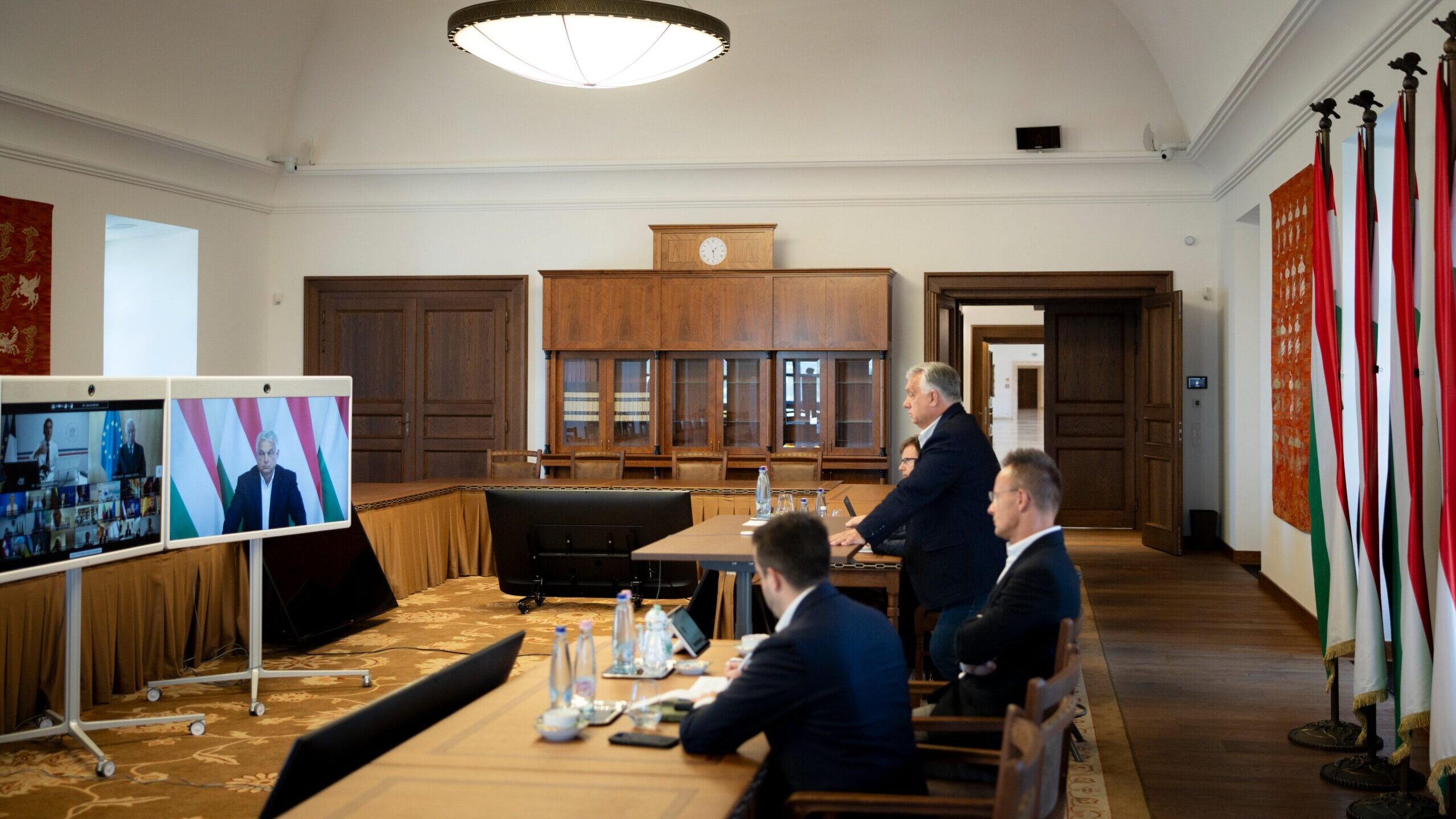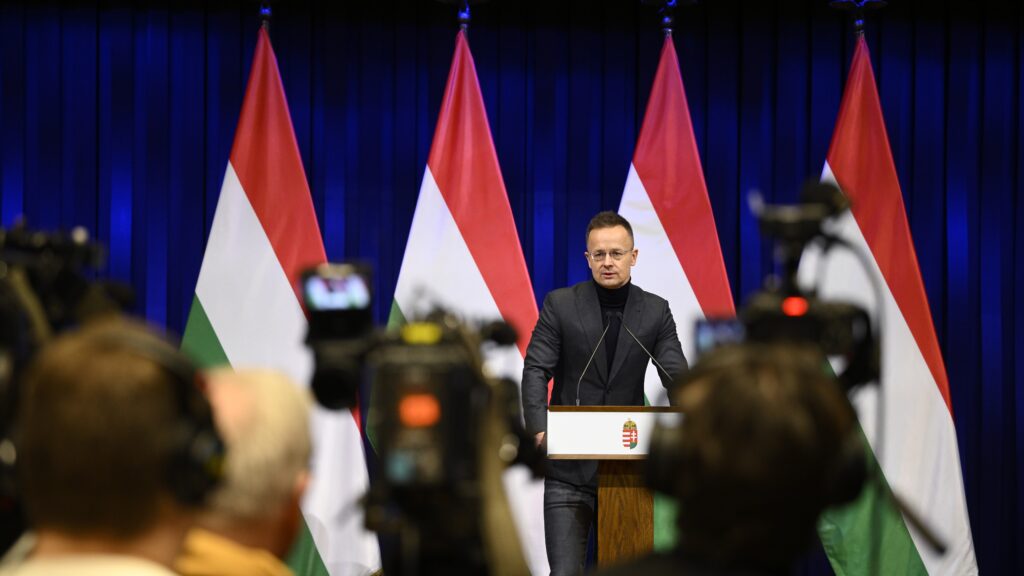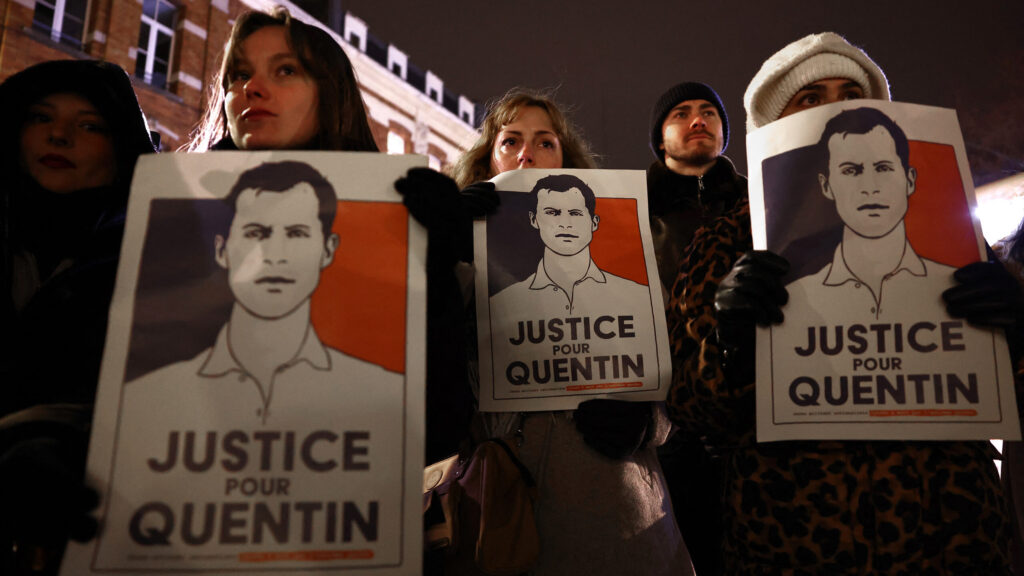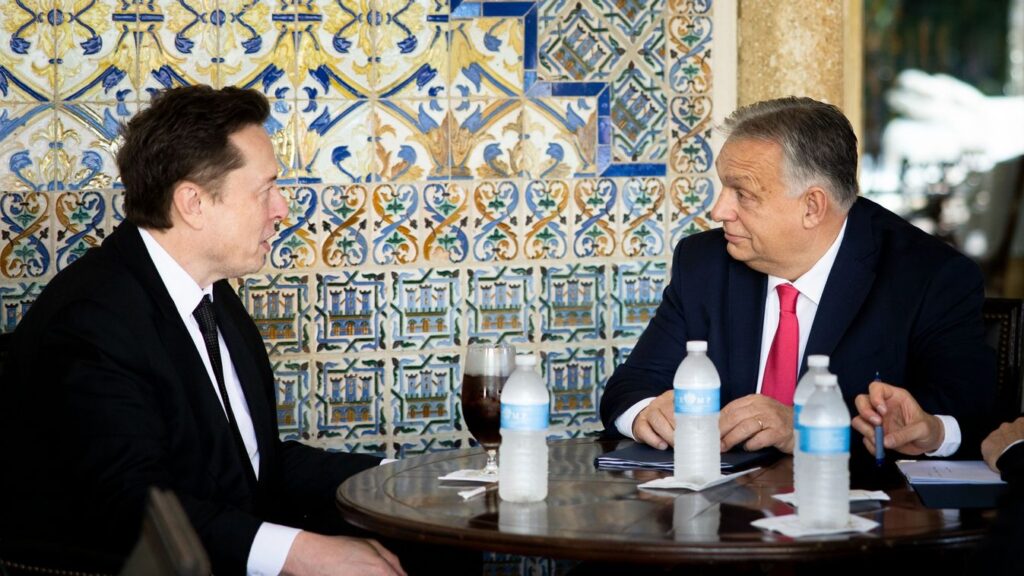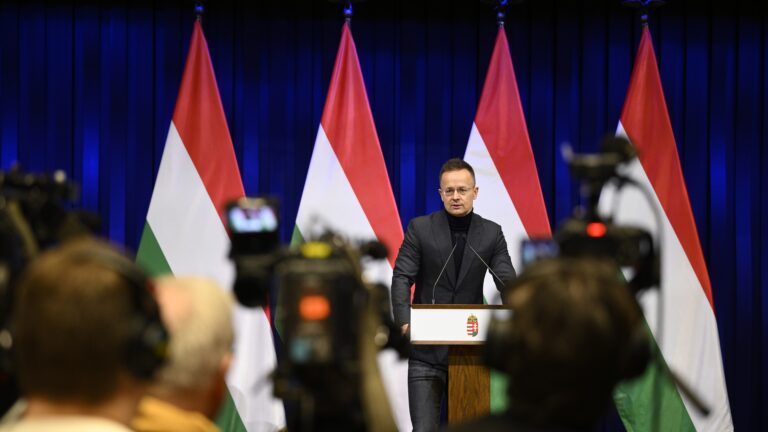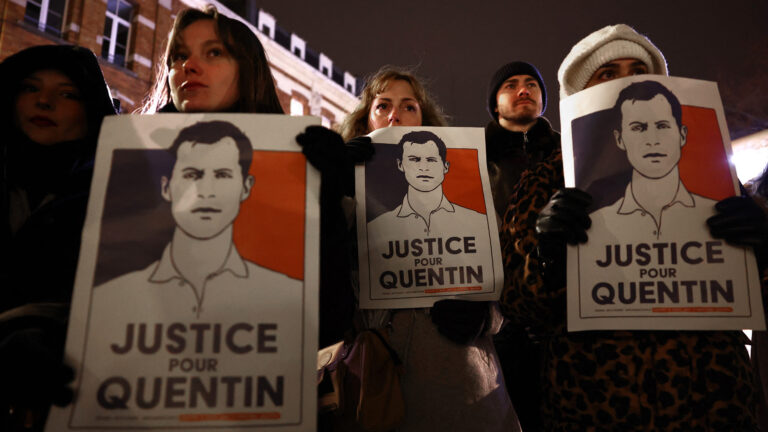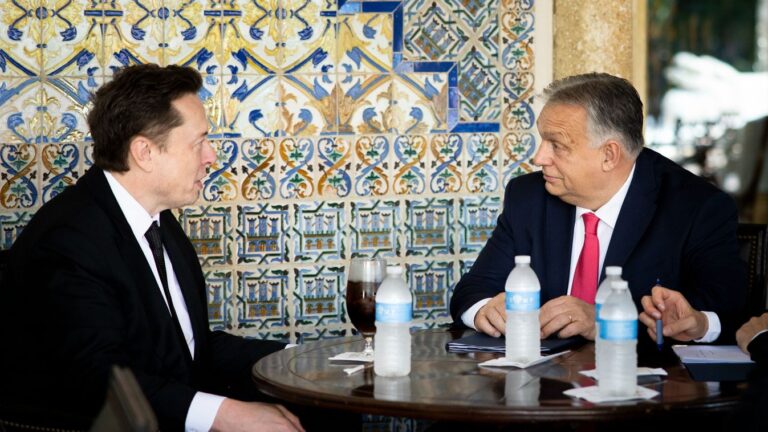Hungarian Prime Minister Viktor Orbán, assessing Tuesday’s European Council videoconference on the Alaska summit and the 18 August White House meeting of Ukrainian President Volodymyr Zelenskyy, EU and NATO leaders, and members of the Coalition of the Willing with US President Donald Trump, stated that every aspect of the European Union’s strategy towards the war in Ukraine over the past three years has proven wrong.
While maintaining a strictly diplomatic tone, Orbán delivered a harsh implicit criticism of the von der Leyen Commission and the majority of EU member states over their approach to the conflict.
EU’s Ukraine Strategy in Ruins
First, Orbán wrote, during the Council meeting, ‘it has been confirmed that the danger of a third world war can only be reduced through a Trump–Putin meeting.’ Hungary has consistently advocated US–Russian talks to end the war—which is a flashpoint that could escalate into a global conflict—and has clearly recognized and expressed the proxy nature of the war. In his State of the Nation address in 2023, Orbán declared that ‘there will be peace when the Americans and Russians negotiate with each other.’
Meanwhile, the EU, through narrative-shaping and rhetoric, has made itself a party to the conflict, portraying Ukraine as the defender of European democracy. ‘You are fighting not only for your freedom, your democracy and your future, but for ours too. You are fighting for Europe!’ von der Leyen famously stated before the Verkhovna Rada in Kyiv in November 2023.
Second, Orbán continued, ‘it has been confirmed that the isolation-based strategy has failed.’ One of the biggest gains for Russian President Vladimir Putin from last Friday’s Alaska summit is that Moscow succeeded in breaking out of three years of Western diplomatic isolation. In doing so, the EU’s ‘no dialogue’ policy—one of the key pillars of Brussels’ Ukraine strategy—collapsed.
Hungary, by contrast, kept channels of communication open with Russia and advocated for joint EU dialogue with Moscow, led by Paris or Berlin, to make Europe relevant in future negotiations. For this stance, Orbán was labelled ‘Putin’s puppet’ and Hungary was threatened with the withdrawal of its voting rights in EU decision-making. In his post, Orbán also emphasized that Hungary continues to keep on the agenda the initiative for the Union to propose a Europe–Russia summit as soon as possible.
Third, Orbán explained, ‘it has been confirmed that there is no solution to the Russia–Ukraine war on the frontline; only diplomatic efforts can bring a solution.’ Hungary’s position has been exactly that since the day Russia invaded Ukraine: stop the loss of countless innocent lives—including civilians, elders, and children—agree to a ceasefire, and then negotiate a compromise, because that is how the war will end regardless. Orbán, for his part, made attempts: the Hungarian prime minister embarked on two peace missions in 2024 and offered a Christmas ceasefire, which was harshly criticized by European leaders and immediately dismissed by Zelenskyy.
Meanwhile, Brussels built on the narrative of an inevitable Russian defeat and an undeniable Ukrainian victory. ‘There can be no doubt that Ukraine will win,’ wrote the EU’s European External Action Service (EEAS) on its Facebook page in 2024, announcing the fifteenth sanctions package against Russia. Those sanctions were framed as the instrument to bring Russia to its knees and to ensure defeat on the battlefield. ‘We must make sure that Putin will be defeated,’ former European Council President Charles Michel told CNN in 2022.
Last but not least, Orbán stated that the Council meeting also confirmed that ‘Ukraine’s membership in the European Union provides no security guarantees; therefore, linking membership with security guarantees is unnecessary and dangerous.’ As Putin reportedly agreed to ‘NATO-like’ Western security guarantees, Brussels’ narrative pushing Kyiv’s fast-track accession has, at the very least, been severely weakened. Orbán was the only EU leader to block the official opening of accession chapters in June 2025, arguing that admitting Ukraine would automatically integrate the conflict with Russia into the EU, posing an extreme security threat to the continent.
‘Hungary welcomes the steps taken at the Trump–Putin talks and supports the continuation of the negotiation process, with particular regard to a second Trump–Putin meeting,’ Orbán concluded.
Orbán Viktor on X (formerly Twitter): "The leaders of the 27 member states of the European Union held a meeting today.1. It has been confirmed that the danger of a third world war can only be reduced through a Trump-Putin meeting.2. It has been confirmed that the isolation-based strategy has failed.3. It has been... pic.twitter.com/iMMLPaaKCw / X"
The leaders of the 27 member states of the European Union held a meeting today.1. It has been confirmed that the danger of a third world war can only be reduced through a Trump-Putin meeting.2. It has been confirmed that the isolation-based strategy has failed.3. It has been... pic.twitter.com/iMMLPaaKCw
Budapest Summit Ahead?
While the Alaska summit established a new reality in which virtually everything the EU pursued over the past three years proved wrong—and much of what Hungary was criticized for has become reality—Putin and Trump may now deliver Orbán a political gift that could bolster his position both domestically ahead of next year’s election and in Europe as well. On Tuesday afternoon, POLITICO Brussels confirmed other media reports suggesting that Trump’s team wants the (potential) Putin–Zelenskyy summit to be hosted in the Hungarian capital.
‘The White House is planning for a possible trilateral meeting between the US, Russian and Ukrainian presidents in the Hungarian capital of Budapest as the next steps in negotiating an end to the years-long war, according to a Trump administration official and a person close to the administration,’ the outlet reported. Asked about Budapest, White House press secretary Karoline Leavitt neither confirmed nor denied the possibility. Geneva, Switzerland, also remains high on the list, with the Swiss Foreign Ministry already signalling openness to host such talks.
‘Alaska summit established a new reality in which virtually everything the EU pursued over the past three years proved wrong’
Hungary has several advantages—and a few disadvantages—as a potential host. The country left the International Criminal Court (ICC) earlier in 2025 over Israeli Prime Minister Benjamin Netanyahu’s visit, which means authorities would not be required to arrest Putin upon arrival. Orbán has a close relationship with Trump, having been the first EU leader to endorse him in 2016, and the two share similar views on key issues such as migration and the war in Ukraine. At the same time, Orbán has maintained good relations with Putin, keeping diplomatic channels open—an essential condition for hosting such a meeting. However, logistics do not play entirely in Budapest’s favour: Putin would need to fly to Türkiye first and then, via the Balkans, to Hungary, as EU airspace remains closed to Russian aircraft.
If Putin and Zelenskyy were to meet in Budapest, with even the possibility of a breakthrough towards ending the war, it could significantly increase Orbán’s influence in global affairs—potentially to a level never before achieved by any Hungarian prime minister.
Related articles:

